Here's how 55 current lawmakers voted on NAFTA in 1993
For some members of Congress, 2019 may feel a lot like 1993.
The North American Free Trade Agreement, or NAFTA, is once again in the spotlight -- though this time, the revised trade deal is known as the U.S. Mexico Canada Agreement, or USMCA.
Fifty-five lawmakers who voted on the original trade agreement in 1993 are still in office today.
At the time, several lawmakers — including Senate Minority Leader Chuck Schumer (D-NY), Sen. Bernie Sanders (I-VT), Sen. Sherrod Brown (D-OH) and Sen. Rob Portman (R-OH) — were serving in the U.S. House and have since moved to the Senate.

Rep. Rosa DeLauro (D-CT) told Yahoo Finance she campaigned in opposition to NAFTA when she was first elected in 1990. When she arrived on Capitol Hill, she waged a war against the trade agreement that she argued would cost American jobs.
“I put my heart and soul into defeating this,” said DeLauro. “It was wild. It was very, very wild. It was really quite a time.”
DeLauro describes the period as an emotional one, especially for a new member of Congress.
“We were on the floor every morning, every night...I partnered with Sherrod [Brown], we whipped, it was a full-scale operation,” said DeLauro in an interview with Yahoo Finance.
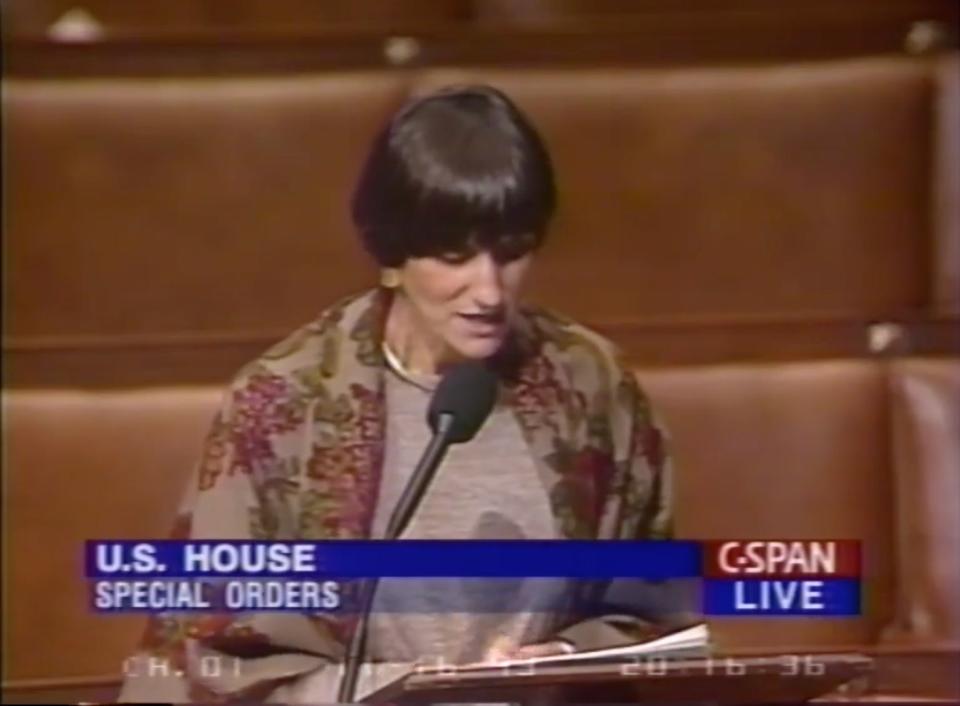
Brown remembers NAFTA was one of his first major votes in Congress.
“We knew that trade agreement would cost American jobs,” Brown told Yahoo Finance.
“That's what's happened with NAFTA over and over. Companies moved to Mexico, sold back into the United States — made more money, as wages have been stagnant and corporate profits are up. Executives are making more money and American workers are hurt,” he said.
Portman was a freshman member of Congress in 1993. He saw the trade agreement with Canada and Mexico differently.
“The notion was that we should be able to knock down barriers on both sides to be able to create more jobs in America,” Portman told Yahoo Finance. “The reality was, that we had relatively low tariffs and these other countries, particularly Mexico, had relatively high tariffs.”
DeLauro and Brown still agree on the issue. DeLauro argues the biggest problem with the trade deal in 1993 was that it was designed for corporations – not workers.
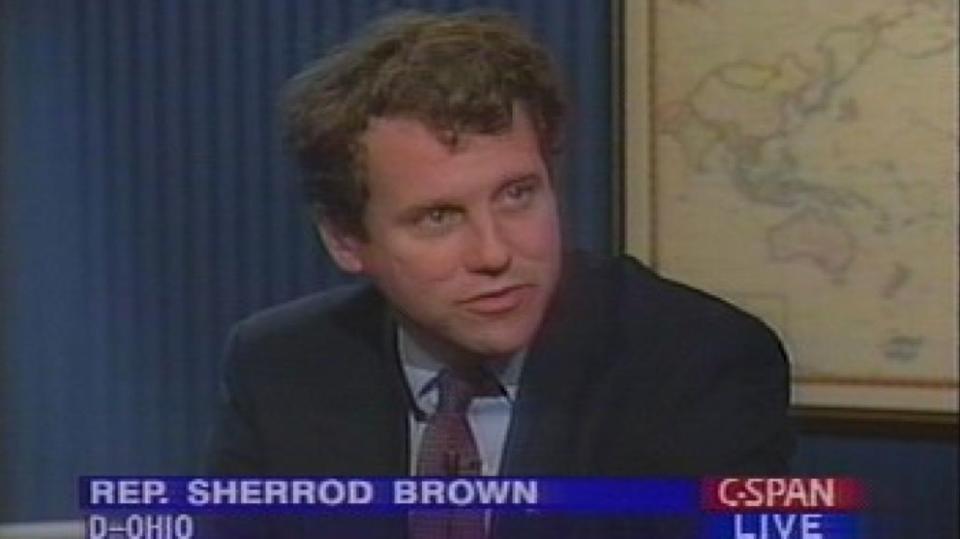
“The point was that companies, corporations are going to outsource their jobs. That is still the problem today,” said DeLauro.
Measuring NAFTA’s impact is not so simple
The reality of NAFTA’s impact on American jobs is tricky.
The goal of NAFTA was to eliminate barriers and increase trade and investment between the three countries.
“The economies really have grown together — all three of them — which was the point. There are a lot of supply chains now that are tightly bound to all three countries,” said Bill Reinsch, a trade expert with the Center for Strategic and International Studies and a former Commerce Department official.
Trade with Canada and Mexico has more than tripled since the agreement took effect — but experts say it’s difficult to blame or credit NAFTA with changes to the American workforce over the past 25 years.
“Trade-related job gains and losses since NAFTA may have accelerated trends that were ongoing prior to NAFTA and may not be totally attributable to the trade agreement,” a 2017 Congressional Research Service report said.
Supporters, like the US Chamber of Commerce, estimate 14 million American jobs depend on trade with Canada and Mexico.
Critics, like the AFL-CIO, claim more than 850,000 American jobs have been outsourced to Mexico under NAFTA.
“NAFTA did not cause the huge job losses feared by the critics or the large economic gains predicted by supporters. The net overall effect of NAFTA on the U.S. economy appears to have been relatively modest, primarily because trade with Canada and Mexico accounts for a small percentage of U.S. GDP,” the CRS report says.
Portman – who went on to serve as the United States Trade Representative under George W. Bush – still says supporting NAFTA was the right move, though he says it’s time to update it.
“It makes more sense for Ohio workers and Ohio farmers, Ohio service providers,” Portman said. “When you compare the existing NAFTA to the USMCA, the USMCA is really better for people who are concerned about jobs and protecting good American jobs than NAFTA.”
Some of the changes included in the USMCA include digital trade provisions, new rules for automakers, new labor and environmental standards and more access to the Canadian dairy market for American farmers.
Reinsch called the new deal a “modest upgrade.”
Trade issues are ‘more regional than party-line’
House Speaker Nancy Pelosi (D-CA) and House Majority Leader Steny Hoyer (D-MD) voted “yes” on the deal in 1993. More than two decades later, they lead a party that has concerns about the revised deal – ranging from enforcement, environmental, labor and pharmaceutical provisions.
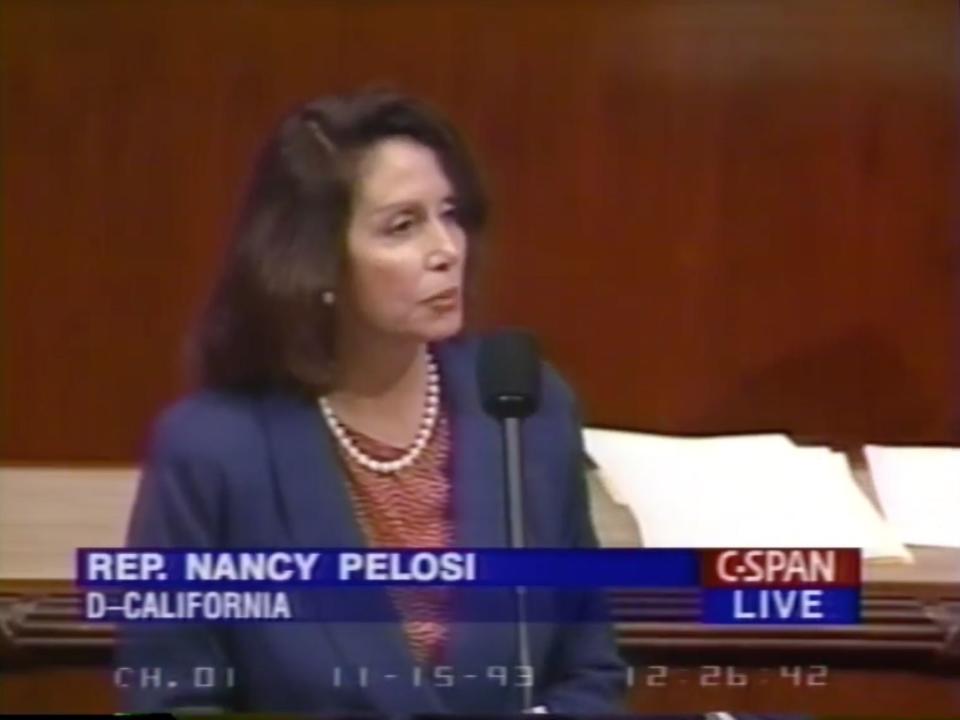
Democratic lawmakers are in talks with United States Trade Representative Robert Lighthizer about their concerns.
“We have had a lot deeper and many, many more conversations with the current US Trade Representative than we ever had with the prior trade representative. That's true for me, it’s true for labor, it's true for a variety of other groups,” said DeLauro.
Portman told Yahoo Finance the USMCA addresses the worries of NAFTA critics.
He and other USMCA supporters point to the new labor standards, environmental standards and rules that require a higher percentage of automobile components to be manufactured in North America to avoid tariffs.
“There's also further protection on the auto side by actually establishing a minimum wage in part, in Mexico, for some of the autoworkers. There's better protections for intellectual property,” said Portman.
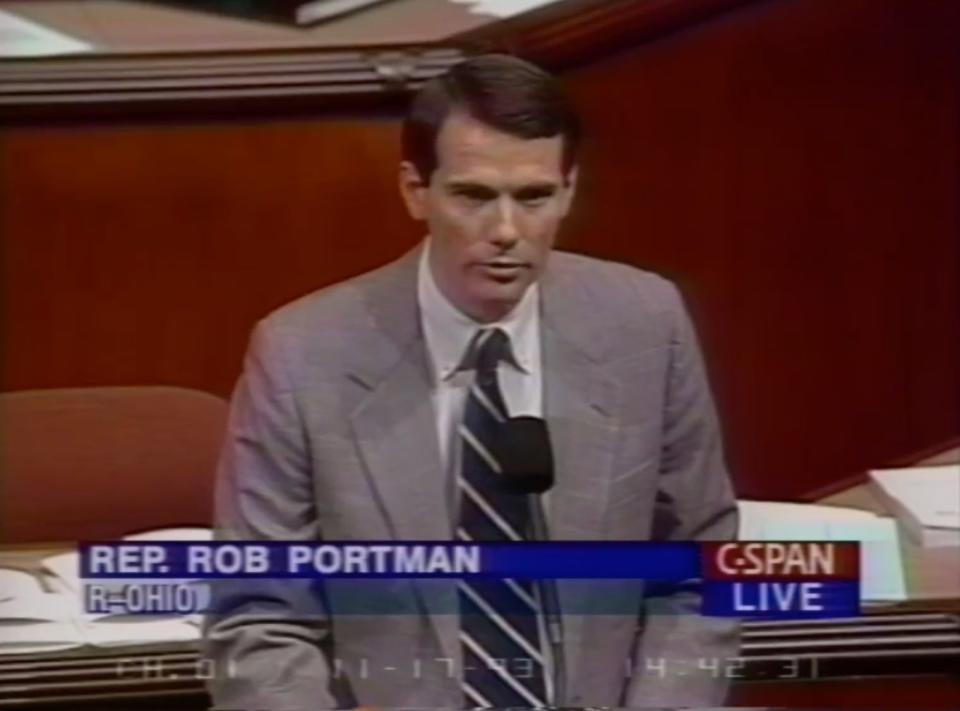
DeLauro acknowledges there are some improvements in the USMCA, but says it’s not enough.
“There has been movement on labor standards, which is important. There have been movements that we wanted to have happen in Mexico with regard to their labor laws,” she said. “However, what's missing here, which is still what the issue is, is there is now no enforcement mechanism for those labor standards.”
DeLauro told Yahoo Finance she believes parts of the agreement need to be renegotiated with Canada and Mexico.
“Do not open the entire agreement. Just do it for two or three things,” said DeLauro.
Brown said without an enforcement mechanism, the USMCA will do “virtually nothing” to stop companies from moving jobs overseas.
“U.S. companies will still look in Mexico with cheap wages, weaker environmental laws, weaker worker safety protections, and choose to move there,” said Brown.
That’s why Brown and Sen. Ron Wyden (D-OR) have proposed a plan that they say will ensure Mexico holds up its end of the deal.
“This has to have real teeth. It has to be enforceable. I didn’t tell the administration you’ve got to do XYZ. But I said what is non-negotiable, if you want my support...it’s got to have real teeth,” said Wyden.
Wyden was also serving in the House during the first NAFTA debate, but he voted in favor of the agreement. Yahoo Finance asked Wyden if he wished he would have voted differently on NAFTA.
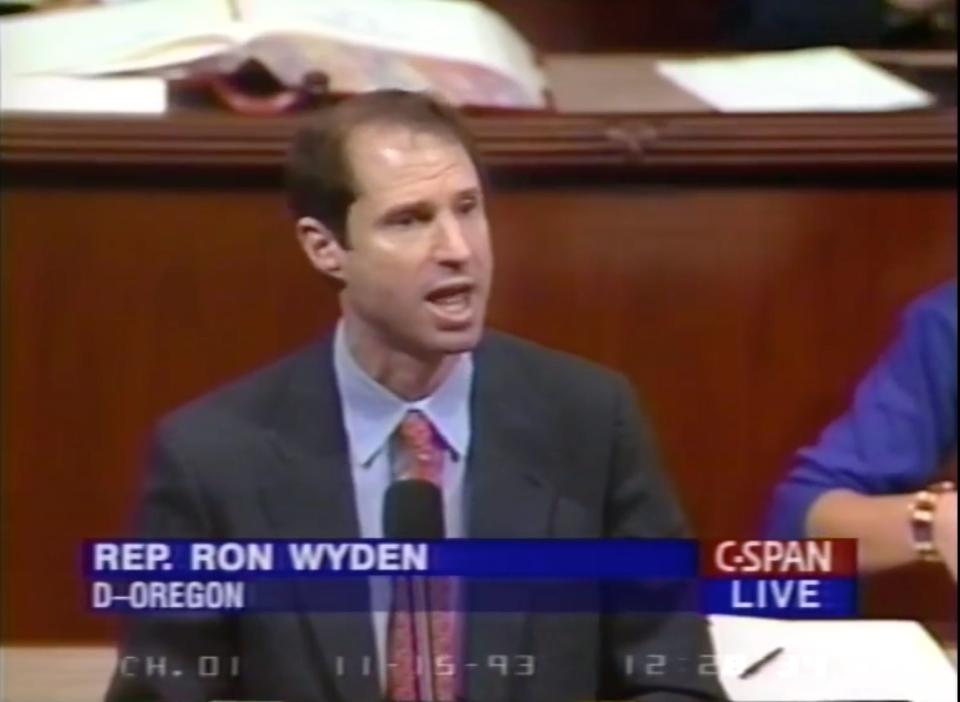
“That was decades ago,” he said. “In those years what you have in your hand [an iPhone] didn’t exist. This is a very different time. There are parts of this [USMCA] that I think are quite constructive, as it relates to technology like you’ve got in your hand. But during those years there were a whole different array of challenges...this is a different time. I’m trying, as the ranking Democrat on the Finance Committee, to make sure we have a modern trade policy for a modern array challenges.”
Votes were not along party lines in 1993. NAFTA was negotiated largely by Republican President George H.W. Bush, and signed into law by Democratic President Bill Clinton.
“I supported Bill Clinton. Supported 98% of everything, you know, that he was engaged or involved with,” said DeLauro.
This time around, with a Republican in the White House, it’s still possible the final vote will not be along party lines.
“I’ve always thought trade is in many ways more regional than party line. You’ll find Democrats and Republicans in California, for example, Washington, Oregon tend to be pro-trade. Democrats and Republicans in Ohio and Pennsylvania and Michigan tend to be more skeptical. It has to do with their districts – he people they represent,” said Reinsch.
“I come from part of the world...one out of five jobs depend on trade,” said Wyden. “In my state [Oregon]— which is incredibly trade sensitive — people say ‘what are you going to do to enforce the laws, to stop the cheating, to stop people from ripping off our jobs?’”
Bipartisan agreement on USMCA
Reinsch said the Democratic party could split, but he expects most Republican lawmakers to end up supporting the deal.
“Trump gives you cover. If he says this is a good agreement — and he does — who in the Republican party is going to say ‘no it’s not’? Nobody is going to be more protectionist than he is,” said Reinsch.
Sen. Mike Crapo (R-ID) voted against NAFTA when he was a member of the House.
“I listen closely to the needs of Idaho’s growers and producers, and I had concerns with the original NAFTA agreement because many goods and services made in the United States received unfair treatment among trading allies,” said Crapo in a statement to Yahoo Finance.
Crapo told Yahoo Finance he’s long believed NAFTA should be renegotiated and he’s encouraged by Trump’s efforts – but he’s still evaluating the new trade agreement.
“The original NAFTA agreement did not provide sufficient market access, nor did it address pricing structures and unfair trade practices in the dairy sector. Access to fair trade treatment in the international marketplace remains a critical component of my focus in considering trade policies,” said Crapo in a statement.
DeLauro did note one key difference between the revised trade deal and trade deals of the past. DeLauro said she never faltered in her opposition to the original NAFTA — or the Trans-Pacific Partnership under President Obama. But this time, she sees potential.
“We had 160 Democrats who never moved off the dime about being opposed to the Trans Pacific Partnership Agreement. With this renegotiated NAFTA, the issue is — we have made progress, but we're not there yet,” she said. “[We’re] looking for a way. Make the changes — we can get there in a bipartisan basis.”
Jessica Smith is a reporter for Yahoo Finance based in Washington, D.C. Follow her on Twitter at @JessicaASmith8.
Read more:
As Trump pushes USMCA, Dems ‘going to the mat’ on enforcement
Mnuchin says he's talked to Walmart CFO about potential tariff impact
Siemens USA CEO: Tariffs aren’t helping anyone
Read the latest financial and business news from Yahoo Finance
Follow Yahoo Finance on Twitter, Facebook, Instagram, Flipboard, LinkedIn, YouTube, and reddit.

